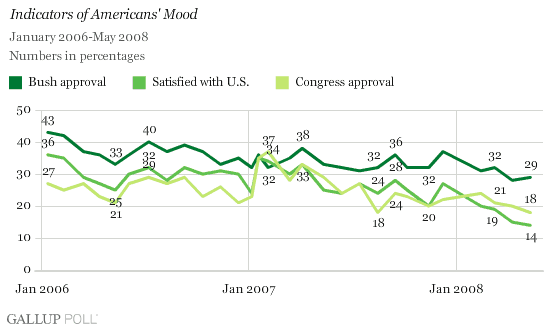First of all, we actually do have something in our daily presidential tracking poll that says that it's likely voters not adults, and we we do have a link to a page that explains something about the differences, maybe not as concisely or as articulate as I will say here...
There's a challenge to defining a likely voter. The process is a little different than in the week before an election for us than it is in two months before an election than it is in a year before an election. And to give a little history, normally if you would go do a sample of all adults, you go and interview whoever picks up the phone and you model your population sample to the population at large. When you begin to sample for likely voters you do it by asking a series of screening questions.
At this point in time, we use a fairly loose screening process, in the sense that we don't ask details about how certain you are to vote in a particular election next November. In fact, even the term "likely voters" is probably not the best term. I used to use the phrase "high propensity voters," because it was suggesting that these people who were most likely to show up in a typical mid-term election. We're not claiming this is a particular model of who will show up in 2010. When we used the phrase, "high propensity voters" -- I got a bunch of journalists who wrote back saying, "what does that mean?" I tried to explain it and they said, "oh you mean likely voters." So I finally just gave up.
Now for us [what] happens is that from this point in time, from now until Labor Day right before the election we will continue to use this model. These are people who are generally likely to show up in a mid-term election. When we get closer to the election, we add additional screens based on their interest in the election and their certainty of voting in this particular race and so the number does get more precise.
What does it mean in practical terms? Rasmussen Reports and Gallup are the only two polls out there with a daily tracking poll of the President's job approval. If you go back from January 20th on, most of the time you will see that Gallup's reported number is about three or four or five points higher than ours, because these are surveys and there is statistical noise. Sometimes the gap is bigger, sometimes its smaller. In fact there are some days when our number is a little bit higher than Gallup's. But typically, the gap between the adults and the likely voter sample is in the four or five point range.
The reason: Likely voters are less likely to include young adults, people who [as] Tom mentioned were very supportive of the President. They are less likely to include minority voters who are, again, very strongly supportive of this President. And so the gap is consistent.


